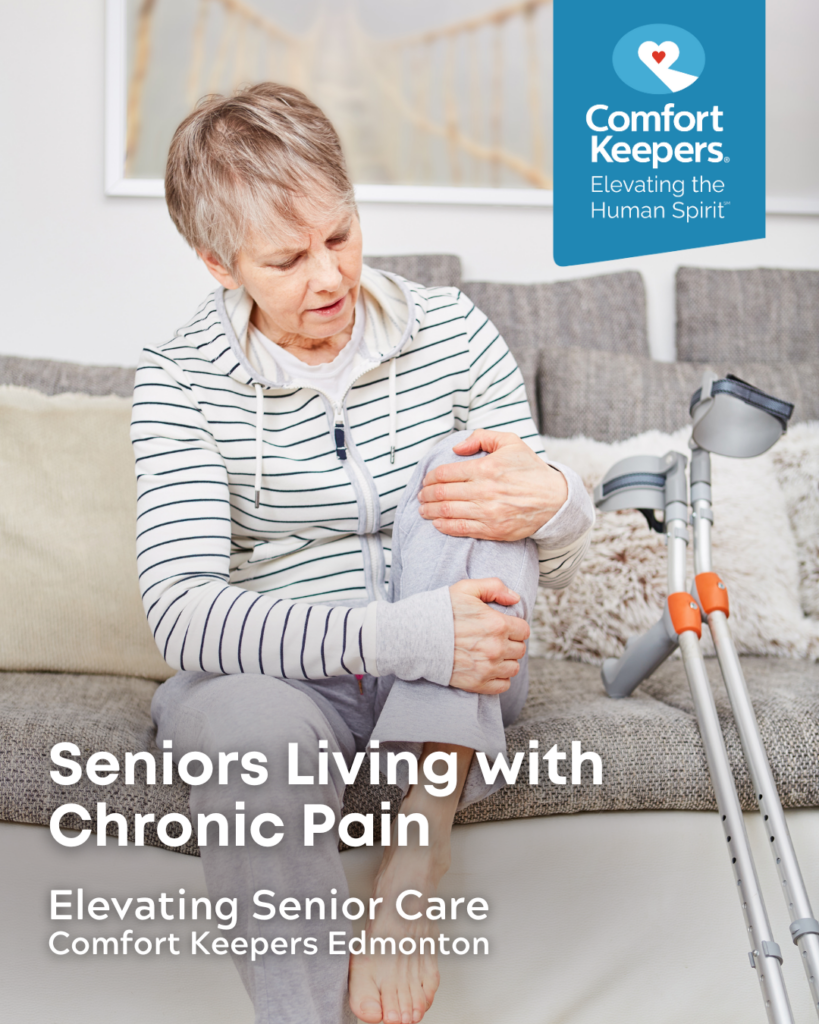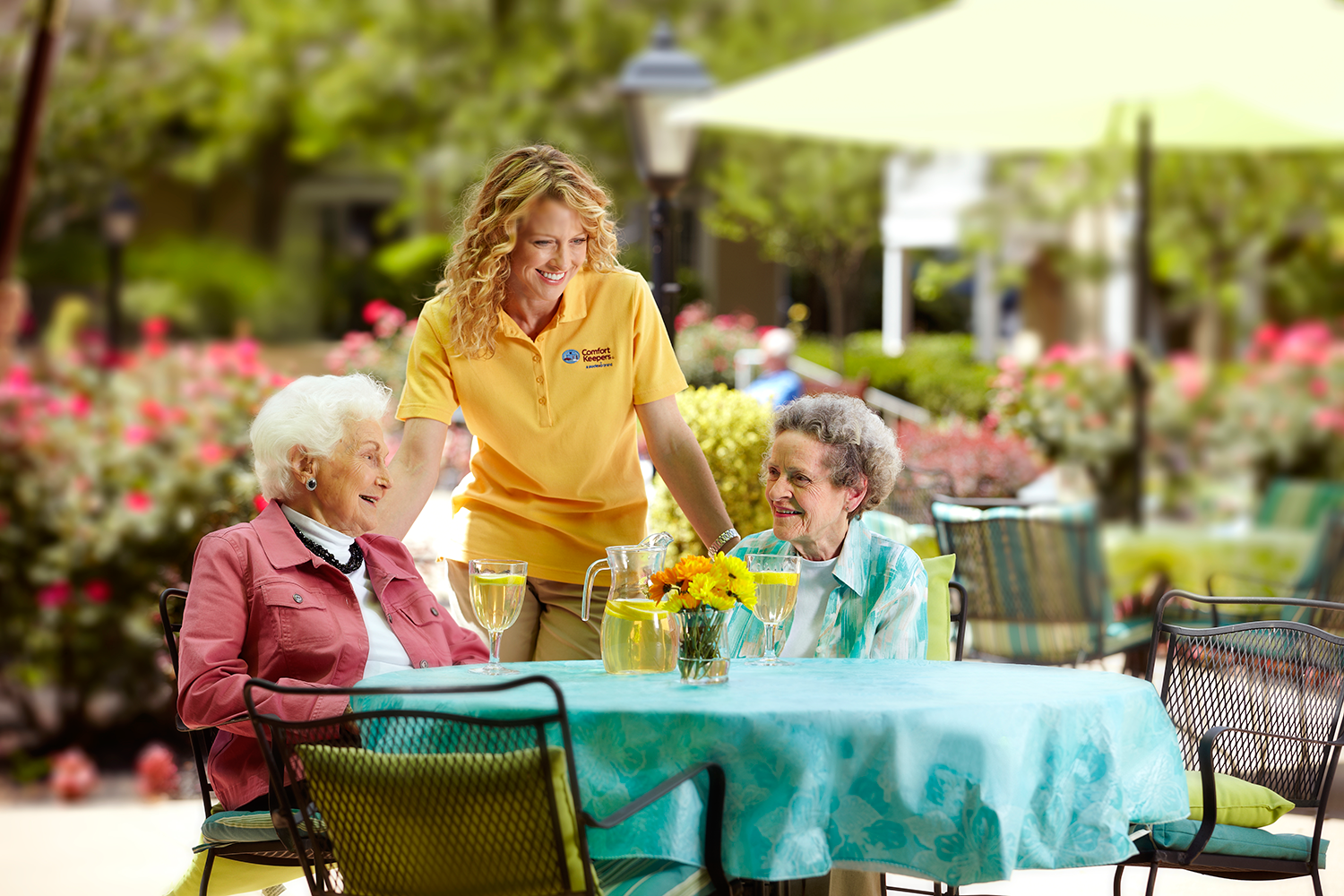Seniors Living with Chronic Pain
Senior Health | June 14, 2021

What Every Senior in Edmonton, AB, Needs to Know About Living with Chronic Pain
Seniors Living with Chronic Pain | The number of North Americans who suffer from chronic pain annually is staggering!
A recent report by the Institute of Medicine estimates the number of people who live with persistent pain — pain that lasts for more than 3 to 6 months — to be 100 million.
Unfortunately, seniors are far more likely than the average adult to be among those that suffer from it. Up to 88% of older adults report some form of chronic pain. But the good news is that older adults working with their healthcare provider can learn to manage their condition and live a full life despite the pain, no matter what their age.
Seniors Living with Chronic Pain: Are They More Vulnerable?
Seniors are more vulnerable to chronic pain for several reasons including greater joint and muscle wear and tear, the presence of other medical conditions, and a general decrease in activity levels. They are also more at risk for accidents that can lead to chronic pain.
Seniors Living with Chronic Pain: Common Types:
About 20% of senior adults report taking pain medications several times per week, usually for joint or muscle-related pain. The more common types of chronic pain seniors tend to have are:
- Arthritis / joint pain
- Peripheral neuropathy, often associated with diabetes
- Central pain syndrome, often associated with stroke
- Repetitive strain injury, such as carpal tunnel syndrome
- Lingering pain from injuries, such as rotator cuff tear or hip fracture
- Cancer pain
- Depression-associated pain
How a Caregiver Can Help Seniors Living with Chronic Pain
As a caregiver, it’s important to know that dealing with chronic pain in seniors can be more challenging because it can be harder to diagnose and treat. Why? Well, statistics show that older adults are less likely to be forthcoming about their pain when speaking with their doctors. This could be out of fear of potential illness, or because they do not want to seem vulnerable.
Oftentimes seniors feel that pain comes with age and that reporting it is unnecessary. Some may also have more trouble communicating their pain because of decreased hearing, compromised abilities associated with a stroke, or even dementia. The result for many seniors is that it leaves them trying to cope with chronic pain unguided, and may also leave them open to anxiety and depression.
The Risk of Falling for Seniors
Falls among the senior population generally cause more damage and complications than they do among younger adults, too. Older adults who have chronic joint pain or muscle aches, especially in the legs, are 50% more prone to falling than seniors who don’t have it. This is bad news in general for seniors because when you couple an injury from a fall with a persistent pain condition, there is a longer recovery period and a return to a potentially lower quality of life.
Comfort Keepers® Edmonton is Proud to Offer a Wide Range of Home Senior Care Services
Our trained caregivers will ensure your loved one is comfortable, independent and safe in their home. On top of that, we will also aim to enhance their overall health, quality of life and general happiness.
Top-Notch Home Healthcare for Seniors in Edmonton, Alberta
Comfort Keepers of Edmonton offers a wider range of senior care services. We offer retirement care, respite care, senior care, companionship care, end-of-life care, post-surgery care, palliative care, personal care, and senior living transition services. If you are concerned about the health and well-being of your aging loved ones we can help with 24-hour care and more!
Helping Seniors Age-in-Place with Companionship Care and Interactive Caregiving™
Empathetic care starts in the heart and allows us to meet our client’s needs. Our trained caregivers are selected with one specific quality in mind, empathy. We strive to stimulate our clients emotionally, mentally and socially, thus enhancing their overall quality of life.
Our Interactive Caregiving™ provides a system of care that addresses companionship, safety, nutrition, mind, body, and activities of daily living (ADLs). The system increases seniors’ sense of well-being, independence and companionship by focusing on Senior Mind, Senior Body, Senior Nutrition, and Senior Safety.
Affordable and Client-Directed Homecare is Available for Qualifying Albertans
Comfort Keepers® Edmonton is an Approved Service Provider for the Client Directed Homecare Invoicing (CDHCI) Program Offered by Alberta Health Services.
What is the Client Directed Home Care Invoicing Program (CDHCI)?
CDHCI is a great program provided by Alberta Health Services (AHS), allowing clients to choose an approved agency like, Comfort Keepers Edmonton for Personal Care, Respite Care and Homemaking needs. The chosen agency can then bill AHS directly for services rendered for approved hours through Alberta Blue Cross. Read more about the program HERE.
Accredited Home Care Edmonton
Comfort Keepers® Edmonton was awarded the “Accredited with Exemplary Standing” seal by Accreditation Canada. This honour demonstrates Comfort Keepers’ commitment to offering safe, high-quality home care to its senior clients in Edmonton, AB.
To learn more about senior in-home care in Edmonton, contact the Comfort Keepers® office. Our service territory includes Edmonton, Devon, Sherwood Park, Stony Plain and surrounding areas, contact the Comfort Keepers Edmonton office at 780-465-4665.
Individualized Home Care Options
Long-Term Home Care, 24 Hour Home Care & Short Term Care Options Customized for You







